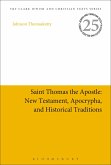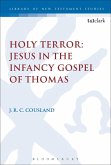Thomas appears only four times in John's Gospel, yet despite this he is crucially important in understanding the function of the Johannine message. Dennis Sylva provides the first major study which examines the paradox that Thomas is both opposed to a dominant theme in the Fourth Gospel - the eternal life that is a gift to Jesus' followers - and yet is in support of Jesus himself.
Thomas appears to have a foot on both sides of the Johannine dualistic divide. He seems to be existentially at home on one side and yet ideologically at home on the other. No other character in John's Gospel so tenaciously hold on to companionship with Jesus while just as resolutely distancing himself from Jesus' central teaching. Thomas breaks down the barriers between the disciples (those who walk in the light) and the world (those who walk in the darkness) that John takes pains to establish. Sylva's new work demonstrates the importance of Thomas in fully understanding the message of the Fourth Gospel.
Thomas appears to have a foot on both sides of the Johannine dualistic divide. He seems to be existentially at home on one side and yet ideologically at home on the other. No other character in John's Gospel so tenaciously hold on to companionship with Jesus while just as resolutely distancing himself from Jesus' central teaching. Thomas breaks down the barriers between the disciples (those who walk in the light) and the world (those who walk in the darkness) that John takes pains to establish. Sylva's new work demonstrates the importance of Thomas in fully understanding the message of the Fourth Gospel.









